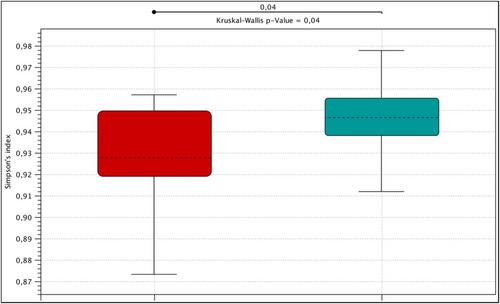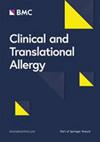The influence of nutritional habits, body mass index and intestinal microbiota in mastocytosis on clinical symptoms using conventional culture and next generation sequencing
Abstract
Background
Mastocytosis is a rare neoplastic disease of the bone marrow associated with the proliferation and accumulation of mast cells in various internal organs, including the gastrointestinal tract. There are few studies describing the gut microbiome of patients with mastocytosis using next generation sequencing supported using traditional culture methods. The aims of the study were, firstly, the determination of nutrition habits, composition of the intestinal microflora and BMI in mastocytosis, and secondly, analysis of mastocytosis severity and symptoms depending on the composition of the intestinal microflora.
Methods
The study included 47 patients with indolent systemic mastocytosis and 18 healthy controls. All participants gave their informed consent to participate in the study. The study consisted of 3 parts: I-clinical assessment, II - examination of the intestinal microflora using the biochemical method, III - 16S rRNA sequencing.
Results
The nutrition habits and BMI of mastocytosis patients were similar to controls; however, most patients with mastocytosis had a low dietary vitamin and mineral content. As many as 94.5% of patients had too little fiber intake and mineral content. The most common cause of the abnormal stool test result with traditional culture was a titer of E. coli <106. The low richness of microbiota species indicated by the Simpson index was observed in mastocytosis, p = 0.04. There were no significant differences in the composition of the intestinal microflora depending on the type of mastocytosis; however, the tryptase level correlated with the amount of Suterella, Barnesiellaceae, Eubacterium, Odoribacter, and Anaerostipes.
Conclusions
The nutritional habits and BMI of mastocytosis patients are similar to the general population, except for too little fiber intake and mineral content. The gastrointestinal symptoms of mastocytosis patients may be related to the low richness of microbiota species and the amount of Suterella, Barnesiellaceae, Eubacterium, Odoribacter, Anaerostipes, which correlated with tryptase levels.


 求助内容:
求助内容: 应助结果提醒方式:
应助结果提醒方式:


